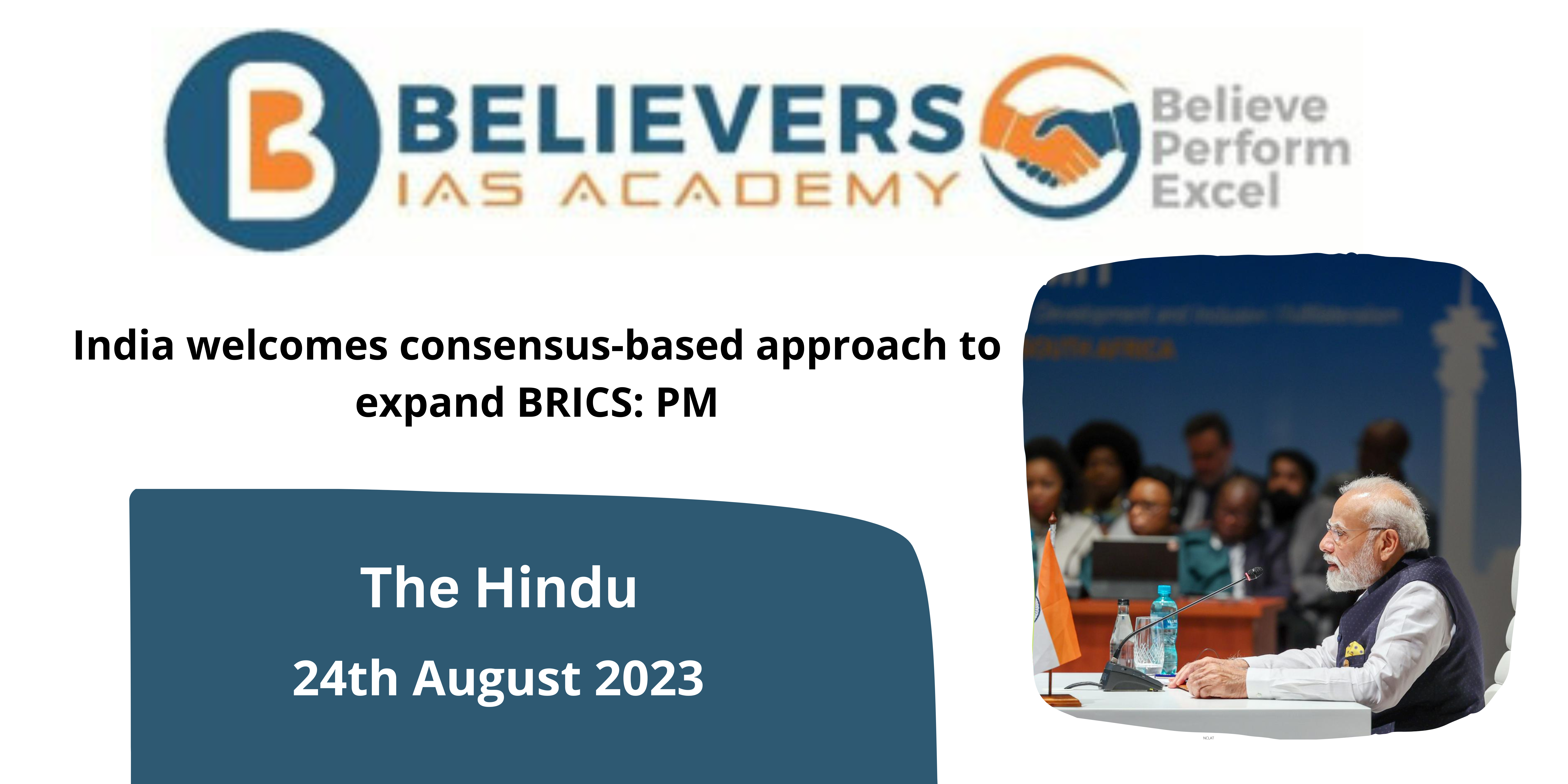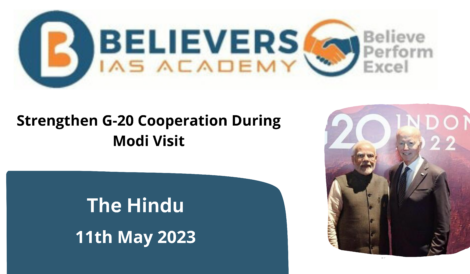India welcomes consensus-based approach to expand BRICS: PM
Context
According to Prime Minister Narendra Modi’s statement on Wednesday in Johannesburg, India welcomes the growth of the BRICS alliance through a consensus-based approach. He urged member states to use India’s digital solutions and to fight for the welfare of the Global South when he spoke at the 15th BRICS Summit plenary session in the ancient South African city.
What is BRICS (Brazil, Russia, India, China, and South Africa)?

- Formation and Expansion: Jim O’Neill of Goldman Sachs first used the acronym “BRIC” in 2001 to describe the developing economies of Brazil, Russia, India, and China. In 2010, South Africa joined the group, transforming it into BRICS. Despite having become a more unified geopolitical bloc, their original goal was to showcase investment opportunities.
- Size and Population: The BRICS countries account for around 26.7% of the earth’s land area and 41.5% of the world’s population, with a combined size of 39,746,220 km2 and a population of about 3.21 billion.
- Economic Power: In terms of population, area, and GDP (PPP), Brazil, Russia, India, and China are among the greatest nations in the world. These nations are regarded as either established or rising superpowers, and their total nominal GDP represents around 26.6% of the world’s GDP.
- Annual Summits: To discuss and coordinate multilateral policy, the BRICS governments hold annual summits. China hosted the 14th BRICS summit in July 2022, which was the most recent gathering.
- Geopolitical Rivalry: The G7, which is made up of the top advanced economies, frequently sees the BRICS as a geopolitical opponent. The New Development Bank, the Contingent Reserve Arrangement, the BRICS payment system, the BRICS Joint Statistical Publication, and the BRICS basket reserve currency are only a few of the BRICS’s competing projects that have been launched.
- Mutual Benefit and Non-Interference: The BRICS countries handle bilateral relativised one of equality, mutual benefit, and non-interference.
What is India’s Stance on the expansion of BRICS?
- India supports the growth of the BRICS alliance through a consensus-based strategy.
- India agrees that the BRICS should be expanded, and feels that the decision should be made by consensus among the current members.
What is the Consensus-based approach proposed by India?
- To come to a consensus on a course of action to address a problem or collection of problems, impacted parties (stakeholders) engage in a consensus-based decision-making process.
- The participants in a consensus process collaborate to identify a resolution that will satisfy all parties.
Who were the leaders involved in the BRICS?
- The plenary session of the 15th BRICS Summit was attended by several leaders, including:
- Brazilian President Luiz Inacio Lula da Silva
- Chinese President Xi Jinping
- South African President Cyril Ramaphosa
- Russian President Vladimir Putin (virtually)
- The BRICS summit was hosted in South Africa in 2023.
What is the stand of India in involving the African Union in the grouping?
- The East African country of Comoros attended the BRICS Summit on behalf of the African Union.
- India advocated for the inclusion of the African Union in the G-20 and solicited cooperation from the other BRICS members for this notion.
What was Russia’s proposal to the grouping this year?
- Russia is attempting to create a rival to the G-7-driven global political-economic paradigm.
- Economic sanctions placed on Russia by Western countries following President Putin’s military involvement in Ukraine in February 2022 are what are driving the campaign for an alternative.
What is India’s Stance on Global Multilateral Systems?
- India agrees that global multilateral systems need to alter to better serve the interests of the Global South.
- While India has entered into local currency agreements with some trading partners, notably the UAE, it hasn’t aggressively advocated de-dollarization like Russia and China do.
- This reveals a subtle divergence in the founding members’ perspectives on international economic arrangements.




